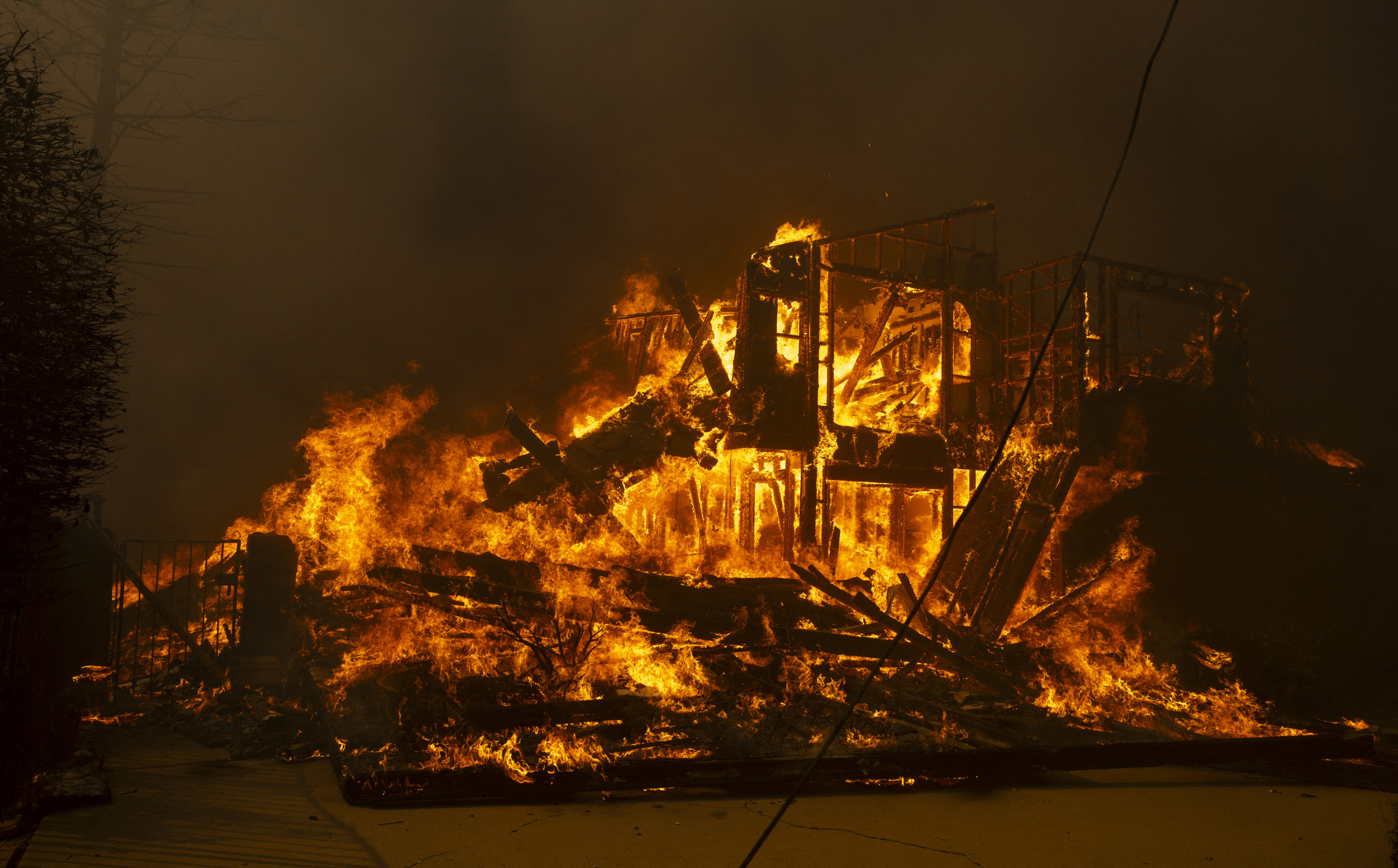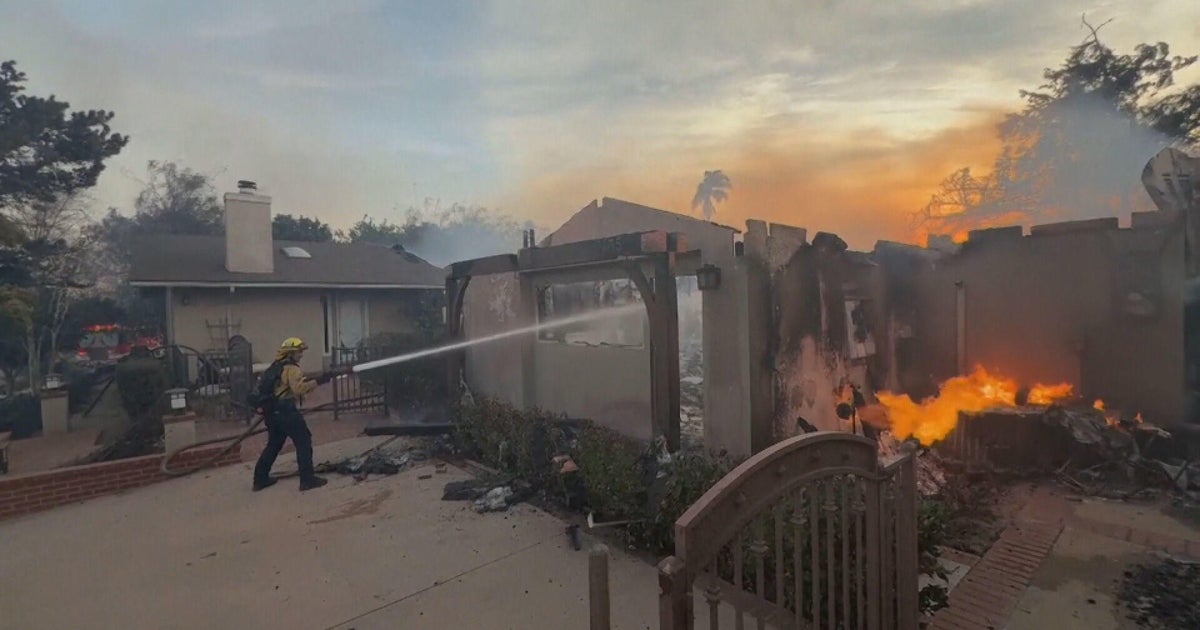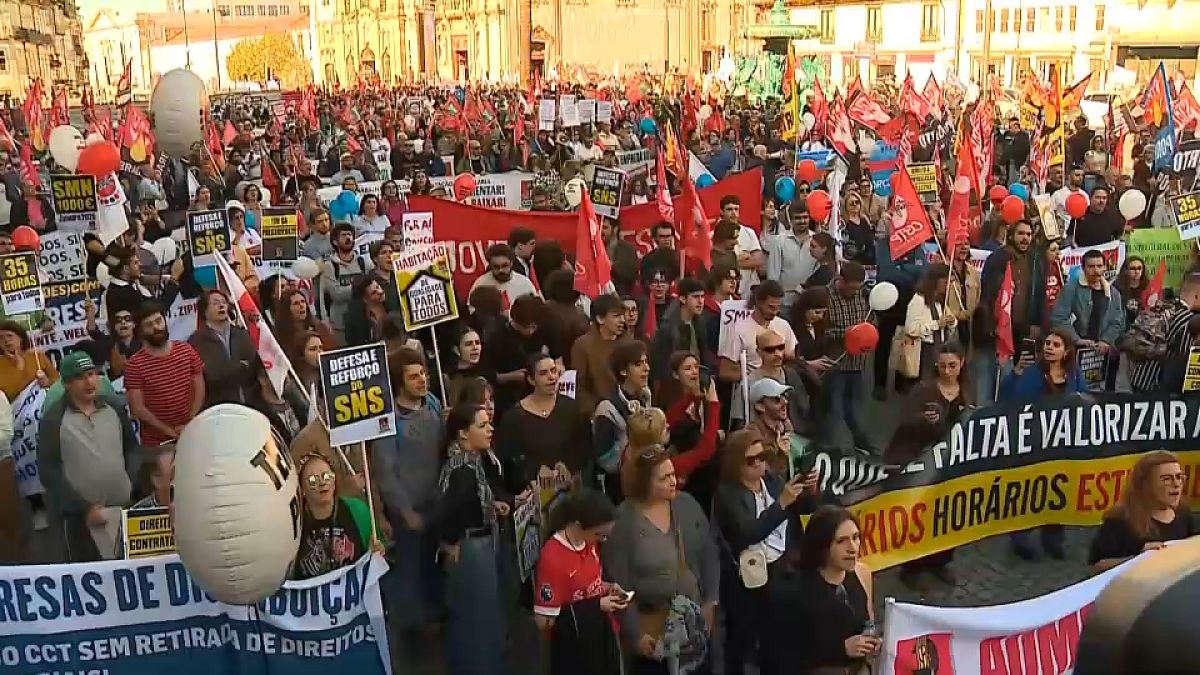California
California has a multibillion-dollar budget deficit. Here's what you need to know
SACRAMENTO, Calif. (AP) — California has a huge budget problem that could force thorny decisions from Democratic leaders who enjoyed a more than $100 billion surplus just three years ago.
This is the second year in a row the nation’s most populous state is facing a multibillion-dollar shortfall. State revenues have continued to fall amid increasing inflation and a slowdown in the state’s usually robust technology industry.
Democratic Gov. Gavin Newsom on Friday announced his plan to address the deficit in the state’s budget. The release of his plan kicks off a budget negotiation marathon with Democratic lawmakers, who hold supermajorities in both chambers.
Newsom and lawmakers have until June 15 to pass a budget, or lawmakers don’t get paid.
HOW BIG IS THE BUDGET?
Newsom proposed a $288 billion spending plan on Friday for the fiscal year that starts July 1. That is well below the nearly $311 billion budget he signed into law last year. But it is still by far the largest of any state in the country. New York recently passed a $237 billion budget, and Texas and Florida spend far less annually.
WHAT ABOUT THE DEFICIT?
It’s complicated. Newsom announced on Friday a $26.7 billion deficit, but it’s really closer to $45 billion. That’s because Newsom didn’t include roughly $17.3 billion worth of actions he and lawmakers already agreed on. Those included a cut of $3.6 billion in primarily one-time funding to some school, welfare and climate programs. The plan also delays and defers about $5.2 billion in spending for various programs, including $1 billion to fund rail and public transit systems.
WHY DOES THE DEFICIT MATTER?
California’s constitution requires lawmakers and the governor to balance the budget — meaning the state can’t spend more money than it has. That means they have to either find more money by raising taxes, which Newsom doesn’t want to do, or find ways to cut, shift or delay spending. Newsom’s proposal focuses mostly on cuts, but it will also dip into reserve funding.
WHAT ARE THOSE CUTS?
Newsom proposed cuts across 260 state programs. Here are some of the highlights:
1. Eliminating 10,000 vacant state worker jobs for a saving of $762 million. Newsom didn’t immediately provide a list of all the jobs.
2. Clawing back $6.7 billion previously set aside to pay doctors more to see poor patients and immigrants.
3. Shaving off nearly 8% in operating costs to almost all state agencies through actions like getting rid of landlines in state offices and evaluating printing needs.
4. Cutting $2 billion from broadband initiatives to pursue cheaper options
5. Closing housing units with 4,600 beds across 13 state prisons to save $81 million.
6. Reducing funding for homelessness and housing initiatives by nearly $1.2 billion, including $474 million from an anti-foreclosure program to preserve existing affordable housing.
7. Reducing $500 million in water storage funding. He didn’t offer specifics on how that would be applied.
8. Shutting down an in-home service care program that serves 14,000 low-income, undocumented immigrants with disabilities for a savings of $94.7 million
9. Cutting roughly $2 billion from six education programs, including $550 million from an initiative to upgrade preschool and kindergarten facilities and $510 million in scholarships for middle class college students pursuing a teaching credential.
10. Eliminating $352.5 million in funding for state and local public health and $189.4 million from mental health services fund.
HOW ABOUT TAX INCREASES?
Newsom has repeatedly said he could balance the budget without raising taxes. But his proposal calls for the suspension of the widely used net operating loss tax deduction for businesses the following fiscal year, which some are seeing as a tax increase.
He is also increasing the tax on managed care organizations, the private companies that contract with the state to provide Medicaid benefits.

California
Mountain Fire update: California fire threatens critical infrastructure

The Mountain Fire in Southern California continues to threaten critical infrastructure after destroying over 130 homes and injuring six people in Ventura County, according to officials and local reporting.
Sixty crews have been deployed to fight the flames of the Mountain Fire that started Wednesday morning in the Ventura County community of Somis.
The Ventura County Fire Department said Saturday night that the Mountain Fire had burned through 20,630 acres and that only 21 percent of the fire had been contained.
“Threats remain to critical infrastructure, highways and communities, while active fire continues to burn within islands of unburned fuel,” the California Department of Forestry and Fire Protection (CAL FIRE) said in an update from Saturday. “Damage inspection teams remain out in the fire area assessing affected structures.”
Newsweek has reached out to CAL FIRE via email for comment Sunday morning.
Etienne Laurent/AFP via Getty Images
Local residents grieved the loss of their homes and their neighbors’ homes. One man’s home that had been in his family for almost four decades was destroyed in the fire.
Brandon Francis told local news station KTLA 5 on Saturday morning that he, his wife, his grandmother and his newborn baby don’t have a place to live.
Their lives were “turned upside down in a matter of minutes” by the Mountain Fire, he said.
“Those rooms had such value to us because we grew up here,” Francis said. “This was the meeting spot for our entire family.”
Suzette Barrick, another local resident, called the fire “horrible,” and said, “I couldn’t stop crying.”
She told KTLA 5 that her neighbor, “a sweet lady, her house is gone, but the one next to hers is fine.” And the home of her friend “is now gone to the ground.”
Nearly 3,000 personnel have been assigned to help fight the fire while 21 helicopters and 497 fire engines have been deployed.
According to CAL FIRE’s Saturday update, decreasing winds have helped crews “with their aggressive fire attack.” But “terrain in some areas continue to be a challenge.”
California Governor Gavin Newsom declared a state of emergency in Ventura County on Thursday.
“This is a dangerous fire that’s spreading quickly and is threatening lives,” Newsom said in a statement on Thursday. “California has mobilized state resources, including personnel, engines and aircraft from CAL FIRE and Cal OES [California Governor’s Office of Emergency Services], to protect communities as our fire and emergency response teams work around the clock to combat this fire.”
He added: “Stay safe and remain alert for instructions from local authorities as dangerous fire weather conditions continue.”
On Wednesday, the governor said that the Federal Emergency Management Agency (FEMA) approved a Fire Management Assistance Grant to help crews on the ground.
Meanwhile, there are currently multiple evacuation orders and evacuation warnings in effect. Details can be found on CAL FIRE’s website.
California
I moved from California to Idaho because my home state changed politically. I love my new conservative community.
- Philip Wiseman and his wife moved to Idaho because they were fed up with California’s politics.
- The retirees made a large spreadsheet to decide which Republican-leaning state to move to.
- They ended up in Eagle, Idaho, and love the conservative values of the community.
This as-told-to essay is based on a conversation with Philip Wiseman, a 70-year-old retiree who moved from California to Idaho with his wife in 2021.
They’re part of a trend of conservatives moving to red states. Data compiled by Idaho officials showed 78% of voters who moved from California to Idaho registered as Republicans between 2020 and 2023.
The median home price in the California town the Wisemans lived, Monte Sereno, was $5.5 million in September 2024, according to Redfin, compared to $748,000 in Eagle, Idaho, the town they moved to.
This story has been edited for length and clarity.
We moved to Idaho from Northern California three years ago this December.
My wife is a fourth-generation Californian, and I moved there in 1985. We loved the state. It was the coolest state to live in forever. I worked in semiconductor sales for Silicon Valley firms and my wife worked in healthcare. We got married in 2011 and built a beautiful home in Monte Sereno, just outside of Los Gatos. It was a really beautiful neighborhood and area.
We just were very obviously conservative. We had friends that were like-minded but the city itself and the surrounding area is quite liberal. And we knew that we couldn’t talk politics with our neighbors.
Our best friends across the street put up a Biden sign in the front yard. I thought, “Are you serious?” We have a lot of respect for those people. And then they doubled down on Biden. I couldn’t believe it.
We always say we didn’t leave California. California left us.
Over time the decisions that the politicians and the governors and the district attorneys and all of these people started making were just really wrong. Everything from being a sanctuary state with protections for undocumented immigrants to some of the highest taxes in the country to not prosecuting criminals, among other reasons. It’s just insanity.
Over time, I felt like it was death by a thousand pinpricks. We got to the point where we decided that we just couldn’t put up with it any longer.
We miss our California and what California used to be. It’s still beautiful. You fly over it and you realize, “God, the state is so pretty. It has so much to offer.” But it’s just so screwed up. We had to get the hell out.
We’re sad about it every day. We think about it all the time.
We made a huge spreadsheet to decide which red state to move to
Once we decided to leave, which was a huge decision, the question then became, “Where are we going to go?”
We looked at several different states. My wife put a huge spreadsheet together with average rainfall, average snowfall, average sunny days, average rainy days, average distance from our daughter, who lives in Nevada, to a major airport. It had to be red, obviously, as red as we could find, and we’d love it to have been a state with no state income tax, but more importantly, we looked at what it costs to live there.
Some states we considered were Texas, Arizona, Nevada, Tennessee, and Florida.
A big spreadsheet later, we ended up coming to Idaho.
I knew a guy that had used to live here and asked him what he thought of the area, and he said it was great and we should look at the Boise area. So we did.
We didn’t know a soul. We came up here and looked around and found a realtor to show us around. We probably made three fact-finding missions up here looking at different areas and neighborhoods. When we finally moved here, we rented for a year, and we looked at neighborhood after neighborhood after neighborhood.
We ended up buying a house here in Eagle, and we’ve been loving it ever since. We’ve been here just about two years now.
We love the Eagle area because it’s very conservative and there’s a lot of like-minded people. It was easy to make friends here. People are polite and friendly. They wave all the time. We’re both retired now, so this is our forever home.
Eagle is also full of people who moved here from California for basically the same reasons we did. And not just Californians; there are also people from Oregon and Seattle.
I used to love California but things changed as I got older
I moved to California when I was around 30. I just turned 70. When I was a younger man, I didn’t pay much attention to politics. California was wonderful. The beach, the ocean, the food, my career.
But over time, you grow up, you grow older, you grow wiser, you get married, you have a child, and you start noticing things more. The more you pay attention, the more things piss you off.
I think it’s best for conservatives to live in conservative neighborhoods. Liberals can live in their own neighborhoods. It didn’t used to be that big a deal, so I hate to say that because it does suck. But I’m just noticing the fact is all.
California
California family reels from destructive Mountain Fire

Watch CBS News
Be the first to know
Get browser notifications for breaking news, live events, and exclusive reporting.
-
Business1 week ago
Carol Lombardini, studio negotiator during Hollywood strikes, to step down
-

 Health1 week ago
Health1 week agoJust Walking Can Help You Lose Weight: Try These Simple Fat-Burning Tips!
-
Business1 week ago
Hall of Fame won't get Freddie Freeman's grand slam ball, but Dodgers donate World Series memorabilia
-

 Culture1 week ago
Culture1 week agoYankees’ Gerrit Cole opts out of contract, per source: How New York could prevent him from testing free agency
-

 Culture6 days ago
Culture6 days agoTry This Quiz on Books That Were Made Into Great Space Movies
-
/cdn.vox-cdn.com/uploads/chorus_asset/file/25299201/STK453_PRIVACY_B_CVirginia.jpg)
/cdn.vox-cdn.com/uploads/chorus_asset/file/25299201/STK453_PRIVACY_B_CVirginia.jpg) Technology1 week ago
Technology1 week agoAn Okta login bug bypassed checking passwords on some long usernames
-

 Health3 days ago
Health3 days agoLose Weight Without the Gym? Try These Easy Lifestyle Hacks
-

 Culture2 days ago
Culture2 days agoThe NFL is heading to Germany – and the country has fallen for American football
















